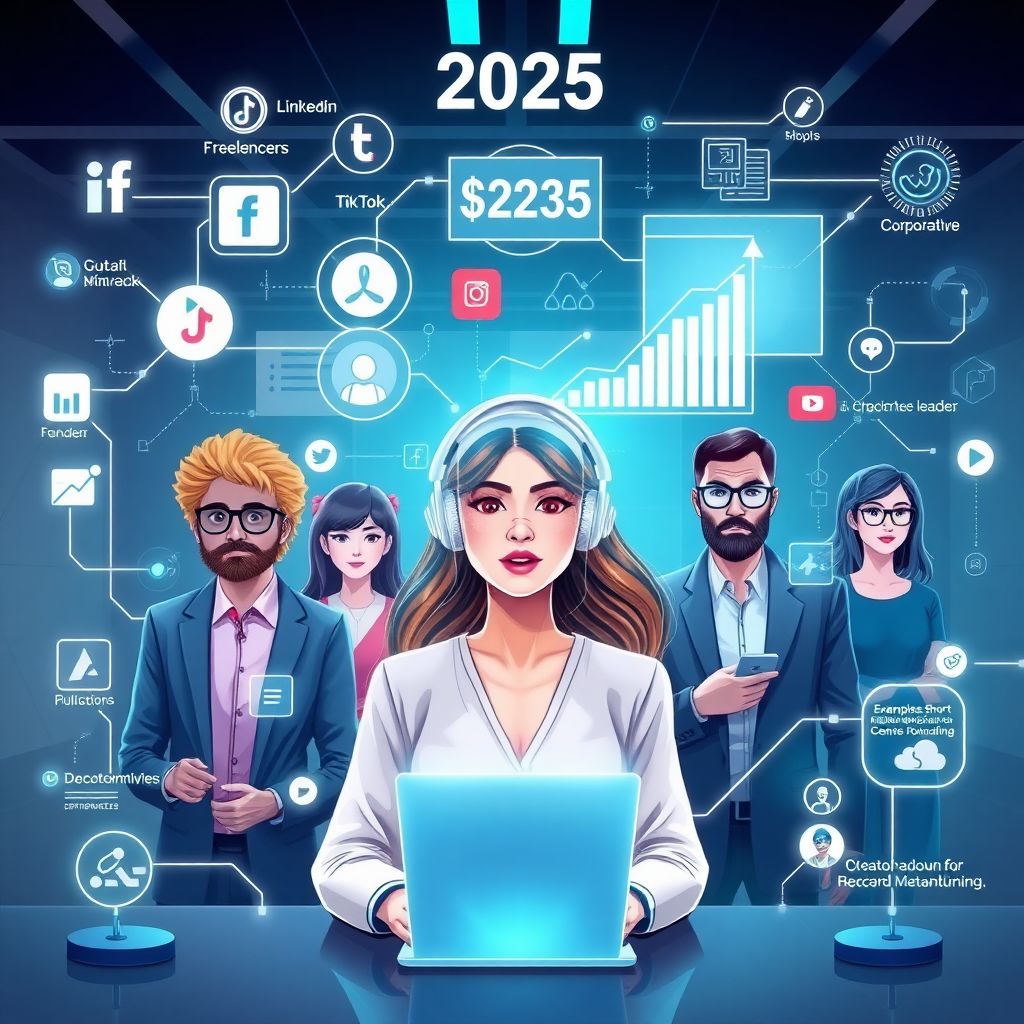Understanding the Power of Personal Branding in 2025

In 2025, personal branding has evolved from a buzzword into a core financial strategy. With the rise of decentralized platforms, AI-enhanced content creation, and the gig economy, individuals are no longer just employees or entrepreneurs—they are brands. Strong personal brands drive attention, credibility, and ultimately, revenue. Whether you’re a freelancer, startup founder, or corporate leader, your personal brand can act as a financial engine, attracting opportunities, partnerships, and capital. It’s not about vanity; it’s about visibility and trust in a saturated digital world.
Inspiring Examples of Personal Branding Done Right

Consider the story of Maya Thompson, a former schoolteacher who leveraged her passion for financial literacy into a multi-million-dollar digital brand. By consistently sharing bite-sized investment tips on TikTok and YouTube, she built a loyal audience, launched an online course, and eventually partnered with fintech platforms. Another example is David Lin, a software engineer turned thought leader on LinkedIn. By publishing niche insights on blockchain development, he became a go-to expert, securing high-paying consulting gigs and equity deals. These stories reflect how authentic, strategic branding directly correlates with financial ascent.
Key Strategies to Develop Your Personal Brand
Building a personal brand is not an overnight process, but a structured approach can accelerate growth. Here are five essential steps:
1. Define your niche – Identify the problem you solve or the value you offer in a specific domain.
2. Craft your narrative – Build a compelling story that highlights your journey, expertise, and purpose.
3. Choose your platforms wisely – Focus on 1-2 platforms that align with your audience (e.g., LinkedIn for B2B, Instagram for lifestyle).
4. Deliver consistent value – Share content, insights, or tools regularly to establish thought leadership.
5. Engage and collaborate – Network with peers, respond to your audience, and seek guest appearances or partnerships.
These steps, grounded in authenticity and consistency, form the foundation for a brand that attracts financial opportunities.
Case Studies of Successful Branding Projects
Real-world applications demonstrate the tangible impact of personal branding on income. Take Sarah Ivanov, a nutritionist who launched her own brand during the wellness boom. By combining recipe reels, a blog, and a podcast, she attracted sponsors, launched a supplementary line, and grew her income by 300% in two years. Another case is Jun Park, an AI researcher who documented his projects on Twitter and Medium. His transparency and insights led to a book deal and advisory roles in startups. These cases illustrate how personal branding translates into scalable, diversified income channels.
Resources to Learn and Grow Your Brand
To build a successful brand, continuous learning is vital. In 2025, a wealth of resources is available:
1. Online platforms – Courses on Coursera, MasterClass, and Domestika offer training in storytelling, digital marketing, and branding.
2. Books – Titles like *“Show Your Work”* by Austin Kleon and *“Building a StoryBrand”* by Donald Miller remain essential.
3. Podcasts and newsletters – Subscriptions to *The Futur*, *Creator Science*, or *Marketing Against the Grain* provide weekly insights.
4. AI tools – Platforms like Notion AI and Jasper help streamline content creation, freeing time for strategy and outreach.
5. Mentorship communities – Groups like Indie Hackers or the Creator Guild connect you with peers and mentors in your niche.
Investing in education ensures your brand evolves with market trends and retains financial viability.
The Future of Personal Branding and Financial Growth
Looking ahead, personal branding will become increasingly data-driven and immersive. In 2025, AI analytics tools already help creators optimize content, while Web3 platforms reward audiences for engagement, creating new monetization models. By 2030, we may see virtual identity layers—avatars and metaverse presence—as standard components of a brand. Financial growth will hinge not just on audience size, but on trust, interactivity, and adaptability. Those who embrace emerging tech and stay authentic will lead the next wave of influential personal brands.
In summary, personal branding is no longer optional—it’s a strategic asset. By cultivating your brand with intention, knowledge, and purpose, you unlock doors to financial freedom and future-proof your career in an ever-evolving economy.

